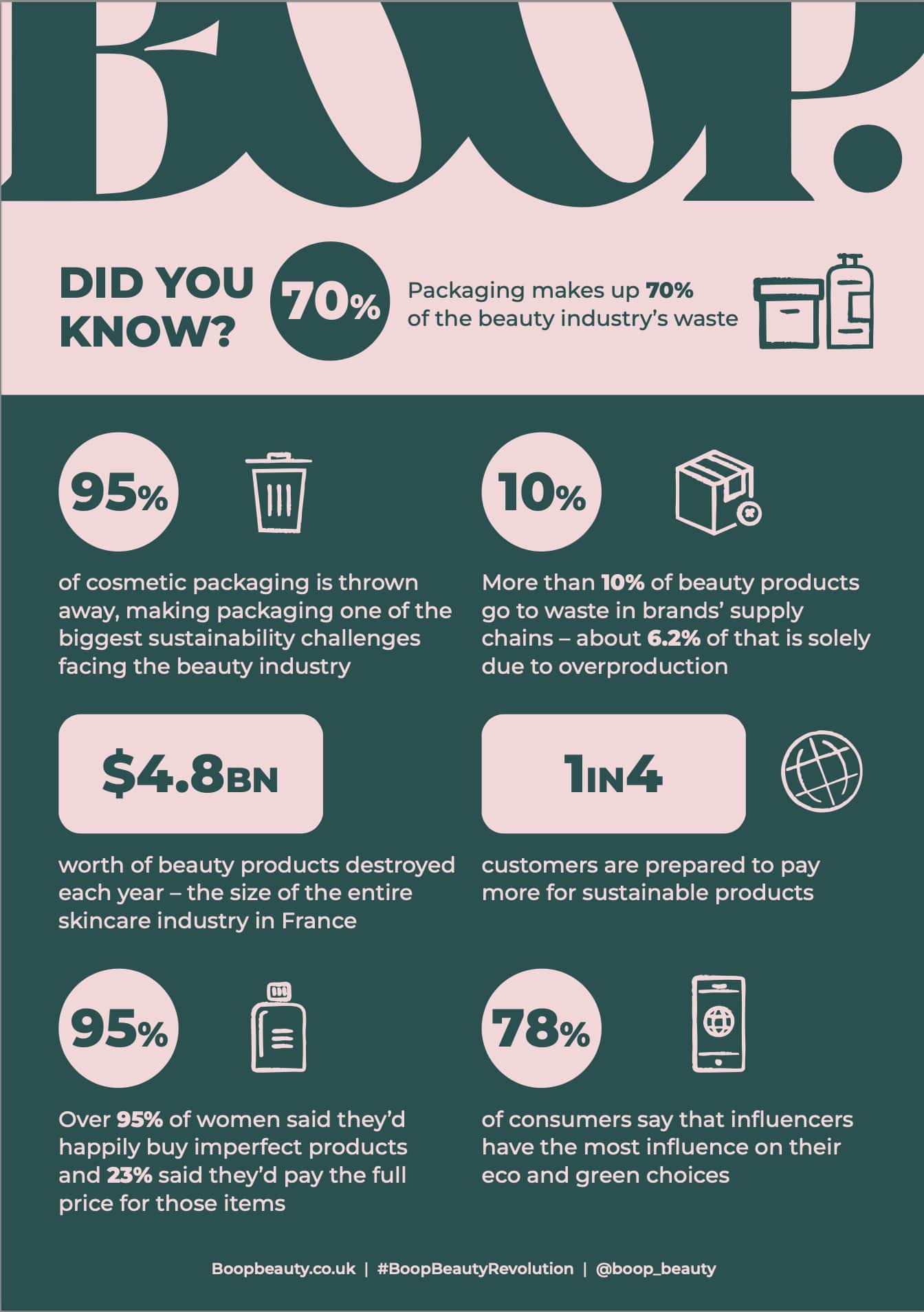
The value of waste in the beauty industry
Imperfect products have long been, and are still considered a liability. In today's world, where every penny counts and every sustainable action is worthwhile, it might be time to transform discarded products into valuable items. TK Maxx (UK) or TJ Maxx (US) surfed on this concept of selling overstock from fashion and beauty brands.
A newcomer has entered the market, in the UK, in late 2023 to release a new offer for unwanted or discarded products. Sometimes products don’t look ‘perfect’ on the outside (damaged labels, or stuck on at the wrong angle, or packaging marked in transit). Other times brands have produced too much, changed branding or reformulated. Sometimes this waste can be caused by missed supply chains and stock forecasting.
The Outnet, but for beauty
“ Boop, is a new retail destination for too-good-to-go beauty. Set to be the online retailer saving perfectly imperfect beauty products from landfill, Boop is the platform giving a second chance to excess beauty products, by offering consumers savings of up to 50% off their best loved mid-to high-end beauty brands.
Boop has curated a selection of premium products sourced directly from brands and retailers to rescue scores of beauty and wellness products.”
Boop is an online store dedicated solely to discarded beauty & wellness products – whether brands made too much, changed their packaging, discontinued lines or if the products are a little imperfect on the outside.

Making the ‘undesirable’, desirable
Boop sources directly from brands and retailers and then sells them directly to consumers at up to 50% off to save them from landfill and help to breathe life back into the beauty supply chain.
Ensuring customer safety, Boop will only sell products which are safe through rigorous quality control checks. Also known as the Boop QC check, here Boop assesses the integrity of each product and confirms that its shelf-life is suitable and its relevant seals are still intact and new.
Boop sells products that are imperfect for several reasons::
- Damaged external packaging
- Unopened customer returns
- Slow-moving and excess stock
- Out-of-season stock and limited editions
- Obsolete stock, old formulations and old branding
- Quality control discrepancies – think shape, colour, texture and size
- Printing errors
- New and unused
Boop’s offerings include cosmetics, make-up, skincare, haircare, bath & body, tools, perfume, supplements and home fragrance. First partner brands included Aromatherapy Associates, John Masters Organics, Indi Supplements, Megi Wellness and The Natural Africa.
Consumer behaviour shifts
“ With buzzwords such as ‘pre-loved’ and ‘upcycled’ becoming the norm within the fashion space and consumers stepping away from fast fashion, the tides are beginning to turn and 1 in 4 customers are prepared to pay more for sustainability,”goes on to explain Yasmine Amr.
“As consumer knowledge around sustainability and greenwashing increases, it’s more important than ever for brands to consider how they manage their excess inventory and think about what they view as ‘waste’”
She continues, “But, as we see an uptick of consumer understanding on recyclability and ingredient traceability, I believe it's an opportunity for brands to begin transparently and positively managing their stock. It’s not wasted when it’s wanted. Over 95% of women said they’d happily buy imperfect products and 23% said they’d pay the full price for those items. With Boop, we’re showing that what’s traditionally considered ‘undesirable’ can be very much desirable.”
A policy of no-destruction
Boop goes even further and ensures that products keep circulating through distributing products via charities. To ensure as many people as possible can feel their best and keep too-good-to-go products out of landfill, Boop has chosen four charities to donate products to: In Kind Direct, Beauty Banks, Look Good Feel Better and The Hygiene Bank.

